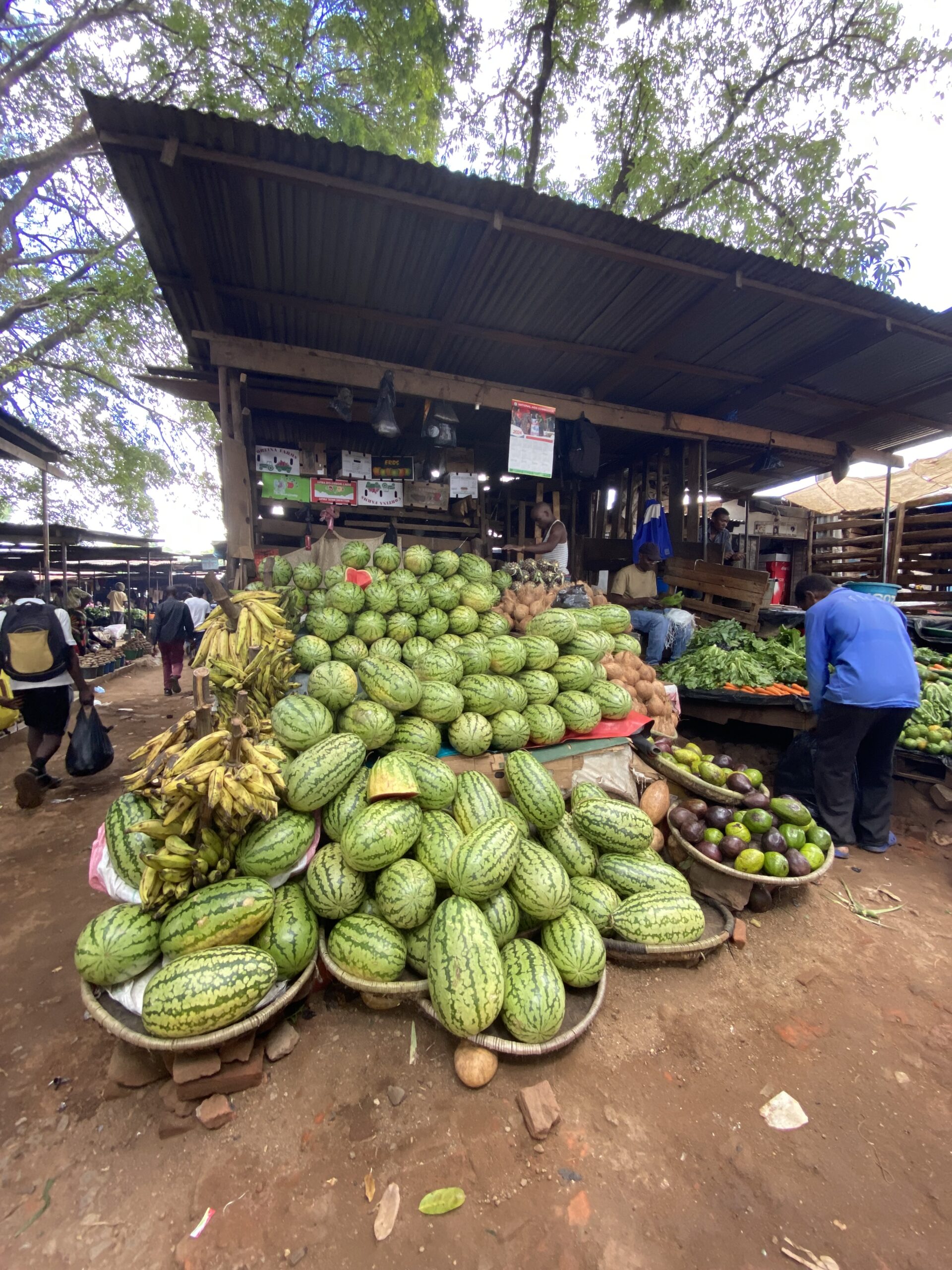Bungoma County, Kenya
Learn more about Bungoma County's food system below
City overview
Bungoma City, the capital of Bungoma County in Kenya, is a vibrant urban center with a rich history. Established as a trading hub in the early 20th century, it is situated at the foot of Mount Elgon, benefiting from one of Kenya’s highest average rainfalls. This contributes to its reputation as a significant food basket, with two cropping seasons and fertile soils supporting cash and food crops. The population was recorded at 68,031 in the 2019 census. The economy is primarily driven by agriculture, particularly sugarcane farming, with the Nzoia Sugar Company Ltd. employing over 67,000 farmers. Other products include maize, vegetables, and dairy. The city also features a small tourist circuit centered around local cultural ceremonies. Its infrastructure includes manufacturing plants and a robust services sector, with a busy retail market, banks, and hotels. Bungoma’s strategic location along the Kenya-Uganda Railway has historically supported its growth and development.
Status of food and nutrition security
The status of food and nutrition security in Bungoma City is complex. Many households primarily consume carbohydrates like ugali (maize meal) daily, while proteins are rare, leading to malnutrition among adults; however, children under five are relatively well-nourished. Access to a balanced diet is limited, especially during severe food shortages in May, with most households viewing proteins as luxury items, although local vegetables are widely available.
Insufficient knowledge about meal balancing contributes to food insecurity, prompting recommendations for sensitisation and training, particularly for adults. Inadequate infrastructure for food distribution and storage exacerbates the issue.
While the National Food and Nutrition Policy aims to enhance food access and support vulnerable groups, local implementation is crucial. A long-term commitment to integrating food security into public policies, along with investments in education and training for households, is essential. A multi-faceted approach is needed to improve access, education, and infrastructure in Bungoma City.
Food systems policies and programmes
Bungoma City has implemented various programmes to improve food and nutrition security and the sustainability of its food system. Key initiatives include:
•Nutrition International Agriculture and Rural Development Innovation: Focuses on enhancing nutrition and food production-related activities
•Ace Africa Kenya: Works to enhance agricultural practices and food security.
•Agricultural Sector Development Support Program (ASDSP): Supports agricultural sector development for food and nutrition security. •Welthungerhilfe (WHH): Aims to combat hunger and malnutrition through diverse initiatives.
•Andy’s Greens: Engages in sustainable agriculture and promotes healthy eating.
•Minto Cooperative Organization: Supports farmers in improving productivity and market access.
•Springs of Hope: Focuses on community-based nutrition and health programmes.
•St. Ann Women Group: Empowers women in agriculture and nutrition activities.
•Nutrition in City Ecosystem (NICE) Project by Syngenta Foundations East Africa: Aims to improve nutrition and well-being while reducing poverty through a food systems approach.

Challenges
General food and nutritional insecurity
Food loss and waste
Food safety & sanitation (including safe water)
Stability of food supply chains
Livelihoods and unemployment
Strengths
Availability of healthy food (preventing food deserts)
Urban agriculture and land use
Multi-stakeholder governance processes
Successful initiatives
1. Multi-Stakeholder Food Systems Platform: Bungoma recently established a platform that brings together various stakeholders within the food system, including farmers, processors, distributors, consumers, government agencies, and NGOs. This platform fosters collaboration, communication, and knowledge sharing. Sharing Potential: Other cities can learn from Bungoma’s initiative and consider replicating a similar platform. AfriFOODlinks can facilitate experience sharing between Bungoma and other cities.
2. Building on Existing Farmer Cooperatives: Bungoma has a presence of farmer cooperatives, such as the Minto Cooperative Organization. These cooperatives empower smallholder farmers by improving their bargaining power, access to resources, and market opportunities.
3. Leveraging Civil Society Expertise: Active NGOs like Ace Africa Kenya and Anglican Development Services Western play a crucial role in Bungoma’s food system. They bring expertise in areas like nutrition education, food security interventions, and community mobilisation.
Ambitions and targets in terms of sustainability of the food system
1.Enhanced Productivity and Resource Management: Improve agricultural output by utilising better seeds, fertilizers, irrigation, and soil conservation practices, boosting food security and farmer incomes while reducing pressure on natural resources.
2.Reduced Food Loss and Waste: Implement improved storage facilities, processing techniques, and transportation infrastructure to minimise post-harvest losses, ensuring more food reaches consumers and lessens environmental impact.
3.Stronger Market Systems and Access: Create a more efficient food supply chain that connects farmers directly to consumers, reducing reliance on middlemen. This would enhance farmer profits, ensure fair prices for consumers, and promote food security.
4.Diversified and Nutritious Diets: Promote urban agriculture, support local processing of fruits and vegetables, and raise awareness about healthy eating to enhance dietary diversity and combat malnutrition.
5.Climate-Smart Agriculture: Implement sustainable farming practices that reduce greenhouse gas emissions, improve water management, and build resilience to climate change, ensuring long-term food security.

